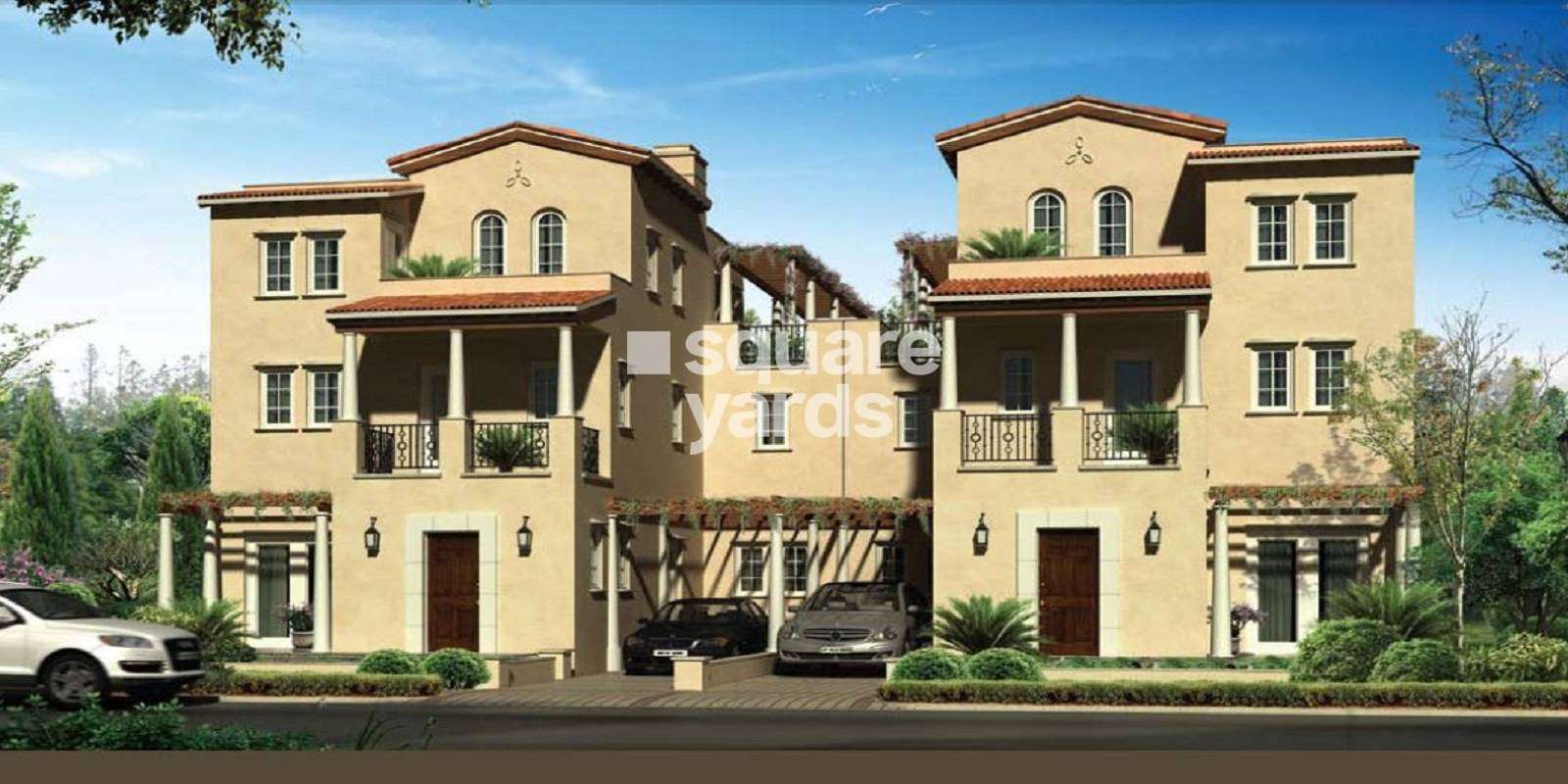Marketing luxury real estate as a high-ticket offering requires a strategic approach that emphasizes exclusivity, quality, and value. Unlike standard real estate transactions, luxury properties demand a nuanced marketing strategy that appeals to a discerning clientele who prioritize prestige, unique features, and unparalleled service.
This comprehensive guide explores effective strategies for marketing luxury real estate as a high-ticket offering. We’ll delve into the essential elements of luxury real estate marketing, practical tactics for reaching high-net-worth individuals, and best practices for positioning properties as premium investments.
Understanding the Luxury Real Estate Market
Luxury real estate represents the upper echelon of the property market, characterized by high value, exclusivity, and premium features. Key attributes of luxury real estate include:
1. High-Value Properties
Luxury properties are typically priced significantly higher than standard real estate, often exceeding several million dollars. These properties are valued for their location, size, architecture, and amenities.
2. Exclusive Features
Luxury homes often include exclusive features such as custom designs, state-of-the-art technology, and high-end materials. These features distinguish luxury properties from mainstream real estate.
3. Prestige and Status
Owning a luxury property is often associated with status and prestige. Marketing strategies should emphasize these aspects to appeal to buyers seeking a symbol of success.
4. Personalized Service
Luxury real estate transactions often involve a high level of personalized service, including private showings, bespoke marketing materials, and tailored negotiations.
Key Strategies for Marketing Luxury Real Estate
To effectively market luxury real estate as a high-ticket offering, consider the following strategies:
1. Highlight Unique Selling Points
Focus on the unique selling points of the property that differentiate it from others in the market. These may include:
- Architectural Design: Emphasize distinctive architectural elements or designs created by renowned architects.
- Location: Highlight prestigious locations, such as exclusive neighborhoods, waterfront properties, or properties with breathtaking views.
- Amenities: Showcase high-end amenities such as private pools, home theaters, wine cellars, and smart home technology.
Example: “Experience unparalleled luxury with this one-of-a-kind estate designed by a world-renowned architect. Situated in the heart of an exclusive neighborhood, this property boasts panoramic views and state-of-the-art amenities, including a private rooftop terrace and an indoor swimming pool.”
2. Create High-Quality Visual Content
Visual content is crucial in luxury real estate marketing. Invest in professional photography, videography, and virtual tours to showcase the property in the best light. High-quality visuals help potential buyers visualize themselves in the space and appreciate its value.
- Professional Photography: Use high-resolution images that capture the property’s beauty and details.
- Video Tours: Create engaging video tours that provide an immersive experience of the property.
- Virtual Reality: Offer virtual reality tours to allow potential buyers to explore the property from anywhere in the world.
Example: “Our exclusive video tour offers an immersive look at this luxury estate, featuring stunning aerial footage and detailed walkthroughs of the property’s opulent interiors and breathtaking outdoor spaces.”
3. Leverage Exclusive Marketing Channels
Utilize marketing channels that cater specifically to high-net-worth individuals and luxury buyers. These channels include:
- Luxury Real Estate Websites: List the property on high-end real estate platforms such as Sotheby’s International Realty, Christie’s International Real Estate, and Mansion Global.
- High-End Magazines: Advertise in luxury lifestyle magazines and publications, such as Robb Report, Architectural Digest, and Elite Traveler.
- Social Media: Use social media platforms to reach potential buyers through targeted advertising and high-quality content. Platforms like Instagram and LinkedIn are effective for showcasing luxury properties.
Example: “Our property is featured in the latest edition of Architectural Digest, highlighting its unique design and luxurious features. Follow us on Instagram for exclusive behind-the-scenes content and updates.”
4. Build Relationships with High-Net-Worth Individuals
Establish connections with high-net-worth individuals (HNWIs) through networking and relationship-building. Engage with potential buyers by:
- Hosting Exclusive Events: Organize private events such as cocktail parties, open houses, or invitation-only showings to attract serious buyers.
- Partnering with Luxury Brands: Collaborate with luxury brands and services to enhance the property’s appeal and reach a broader audience.
Example: “Join us for a private viewing of this extraordinary estate, complete with a curated wine tasting experience in collaboration with a renowned sommelier.”
5. Emphasize the Lifestyle
Position the property as a gateway to an enviable lifestyle. Highlight how the property enhances the buyer’s quality of life and aligns with their aspirations.
- Community and Lifestyle: Promote the community’s exclusive amenities, such as private clubs, golf courses, or cultural institutions.
- Personalization: Showcase how the property can be customized to meet the buyer’s specific preferences and needs.
Example: “Imagine a life of unparalleled luxury and comfort in this stunning estate, complete with access to a private golf club, gourmet dining options, and world-class cultural events.”
Best Practices for Marketing Luxury Real Estate
To ensure the success of your luxury real estate marketing efforts, follow these best practices:
1. Maintain Professionalism and Discretion
Professionalism and discretion are paramount in luxury real estate. Ensure that all communications, marketing materials, and interactions reflect the high standards of the industry.
2. Focus on Quality Over Quantity
Prioritize quality over quantity in your marketing efforts. Invest in high-end marketing materials and focus on reaching a targeted audience rather than casting a wide net.
3. Stay Updated on Market Trends
Stay informed about current trends in the luxury real estate market. Understanding market dynamics and buyer preferences will help you tailor your marketing strategy effectively.
4. Provide Exceptional Customer Service
Offer exceptional customer service throughout the buying process. Be responsive, attentive, and accommodating to meet the needs and expectations of luxury buyers.
5. Measure and Optimize
Regularly measure the performance of your marketing campaigns and strategies. Analyze data, gather feedback, and make necessary adjustments to optimize your approach and achieve better results.
Common Challenges and How to Overcome Them
Marketing luxury real estate comes with its own set of challenges. Here’s how to address some common issues:
1. High Competition
The luxury real estate market is highly competitive, with many properties vying for attention. To stand out, focus on unique selling points, high-quality marketing materials, and personalized service.
Solution: Develop a strong value proposition and highlight what makes your property unique. Invest in premium marketing channels and create a compelling narrative around the property.
2. Understanding the Target Audience
Reaching high-net-worth individuals requires a deep understanding of their preferences and expectations. Conduct research to identify what drives their purchasing decisions.
Solution: Use market research and data analysis to gain insights into your target audience. Tailor your marketing messages and strategies to align with their values and interests.
3. Managing Expectations
Luxury buyers often have high expectations for both the property and the buying process. Ensure that you meet or exceed these expectations to build trust and credibility.
Solution: Provide exceptional service, maintain clear communication, and be responsive to buyer inquiries. Ensure that the property is presented in the best possible light and address any concerns promptly.
Measuring Success in Luxury Real Estate Marketing
To evaluate the effectiveness of your luxury real estate marketing efforts, track the following metrics:
1. Lead Generation
Measure the number of leads generated through your marketing campaigns. Analyze the quality of leads to determine if they align with your target audience.
2. Conversion Rates
Track conversion rates to assess how effectively your marketing strategies are turning leads into buyers. Evaluate the success of different tactics and adjust your approach as needed.
3. Engagement Metrics
Analyze engagement metrics such as website traffic, social media interactions, and email open rates to gauge the effectiveness of your marketing content and campaigns.
4. Sales Performance
Monitor sales performance to determine the impact of your marketing efforts on closing deals. Assess the time taken to sell properties and the overall success of your high-ticket offerings.
5. Customer Feedback
Gather feedback from buyers and prospects to understand their perceptions of your marketing efforts. Use this feedback to refine your strategies and improve future campaigns.
Marketing luxury real estate as a high-ticket offering requires a sophisticated approach that emphasizes exclusivity, quality, and value. By highlighting unique selling points, creating high-quality visual content, leveraging exclusive marketing channels, building relationships with high-net-worth individuals, and emphasizing the lifestyle associated with the property, you can effectively position luxury real estate as a premium investment.
Adhering to best practices, addressing common challenges, and measuring success will help you achieve better results and stand out in the competitive luxury real estate market. With the right strategies and execution, you can successfully market luxury properties and attract discerning buyers.
Frequently Asked Questions (FAQ)
1. What are the key strategies for marketing luxury real estate as a high-ticket offering?
Key strategies include highlighting unique selling points, creating high-quality visual content, leveraging exclusive marketing channels, building relationships with high-net-worth individuals, and emphasizing the lifestyle associated with the property.
2. How can I effectively use visual content in luxury real estate marketing?
Invest in professional photography, videography, and virtual reality tours to showcase the property’s beauty and features. High-quality visuals help potential buyers appreciate the value and envision themselves in the space.
3. What are some effective marketing channels for reaching high-net-worth individuals?
Utilize luxury real estate websites, high-end magazines, and social media platforms. Consider hosting exclusive events and partnering with luxury brands to enhance your reach and appeal.
4. How can I build relationships with potential luxury buyers?
Engage with potential buyers by hosting private events, offering personalized service, and collaborating with luxury brands. Building connections through networking and providing exceptional customer service can help attract serious buyers.
5. What metrics should I track to measure the success of my luxury real estate marketing efforts?
Track metrics such as lead generation, conversion rates, engagement metrics, sales performance, and customer feedback. These metrics will help you evaluate the effectiveness of your marketing strategies and make necessary adjustments.
Get in Touch
Website – https://www.webinfomatrix.com
Mobile - +91 9212306116
Whatsapp – https://call.whatsapp.com/voice/9rqVJyqSNMhpdFkKPZGYKj
Skype – shalabh.mishra
Telegram – shalabhmishra
Email - info@webinfomatrix.com

.jpg)
.jpg)






 English (US) ·
English (US) ·